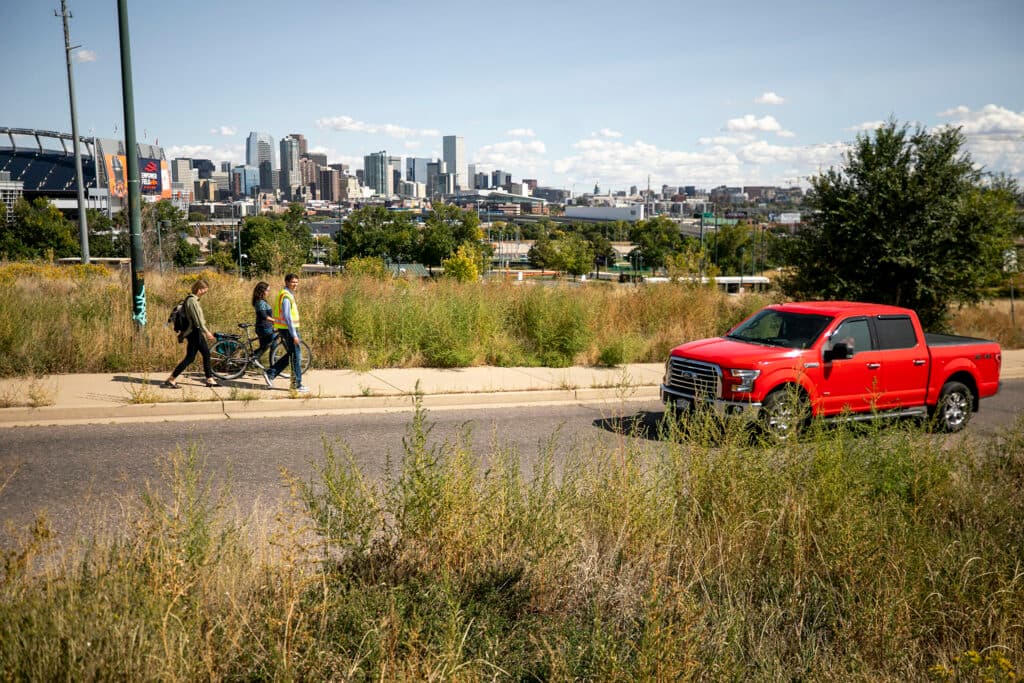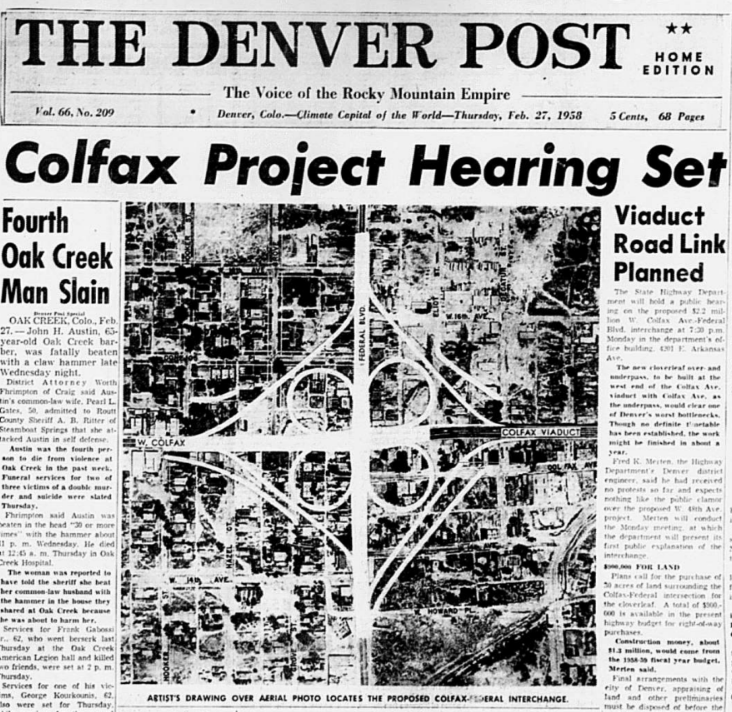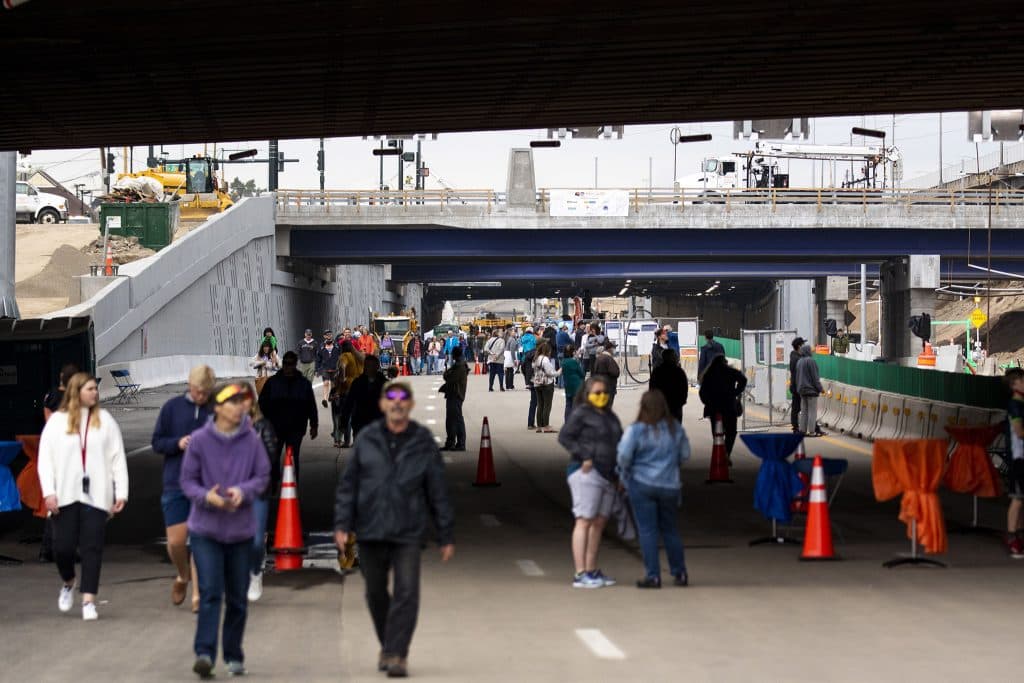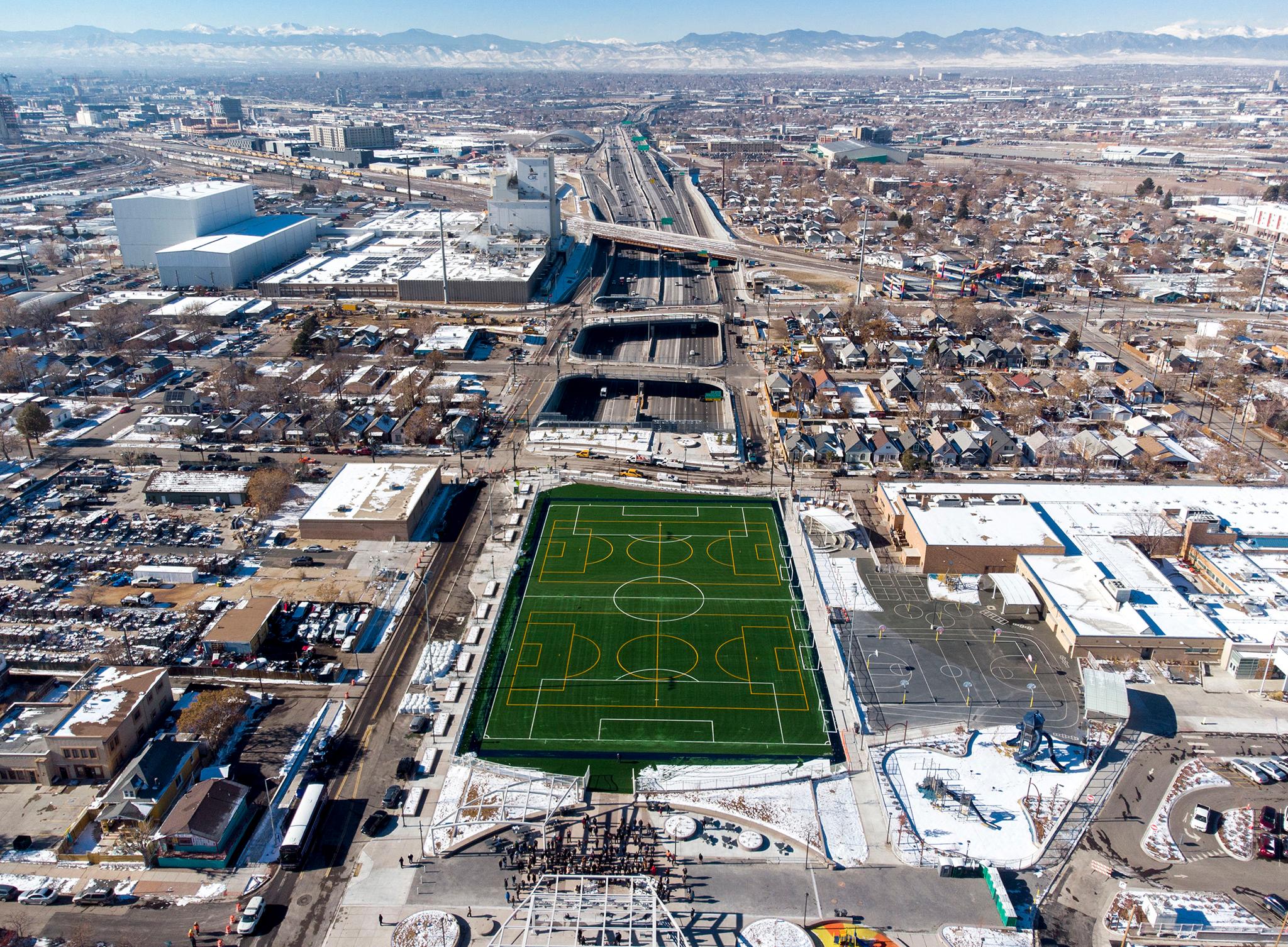Denver is getting more than $37 million in federal investments aimed at improving infrastructure and connecting marginalized communities divided by highway projects decades ago.
Around $35.5 million of that will go to projects in Globeville and Elyria-Swansea, and another $2 million will go to starting the process of removing the massive highway interchange at Colfax Avenue and Federal Boulevard.
The money is part of a program from the Biden Administration aiming to direct 40 percent of federal investments into marginalized communities disproportionately affected by pollution and divided by highway projects in the 1900s. A recent study of Globeville and Elyria-Swansea found that residents in those neighborhoods faced worse health outcomes.
The funding is part of a $3.3 billion allocation from the federal government going to 132 communities across the country, with money coming in part from the massive climate bill signed by the Biden administration in 2022.
“While the purpose of transportation is to connect, in too many communities past infrastructure decisions have served instead to divide,” said U.S. Transportation Secretary Pete Buttigieg in a statement Tuesday.

For years, transportation advocates have pushed the city and state to transform the Colfax and Federal interchange into pedestrian friendly infrastructure that would connect, rather than divide, West Denver.
Like Interstate 70, which divided Globeville and Elyria-Swansea, the cloverleaf was one of many highway projects built in the 1950s and 1960s to prioritize cars at the expense of poor, minority neighborhoods. The project demolished more than 200 buildings, including an old synagogue, in the historic Jewish and Latino neighborhood.
These days West Colfax and Sun Valley residents and transportation advocates complain of fast cars, dangerous intersections and RTD buses sent through neighborhood streets.
For years, the state, with Denver's support, conducted studies and made plans that led to no true changes. Now, the new federal funding will go toward planning, design and outreach for a project removing the cloverleaf interchange barrier, with the goal of better connecting neighborhoods on the west side of the city. The project will also improve pedestrian and bike infrastructure.
“It's a huge step forward,” said Denver Streets Partnership Executive Director Jill Locantore, who has been advocating for changes at the intersection for years. “This community’s really been pointing to the Colfax Federal cloverleaf interchange as a major barrier that divides the neighborhood, makes it unsafe and isn't serving the community's needs, and so it's really exciting to finally see our government leaders also taking on the charge.”
With Bus Rapid Transit lines planned down Colfax and Federal, Locantore said money to draft plans for the intersection adds a key piece of the puzzle in imagining what that corridor will look like long term, with a focus on people who actually live in those communities rather than just those that travel through it.
The $2 million only greenlights planning for a potential project; any actual changes would likely require more federal funding down the road. But Locantore said that the initial money is a key first step, and makes it more likely that the state would win future dollars to actually do the project.
“What this will allow is an actual detailed shovel-ready plan,” Locantore said. “ I think we're definitely feeling optimistic that we're on the right path to get there sooner rather than later. This has been a pipe dream for so long. Now, it's actually starting to feel real.”

Globeville and Elyria-Swansea will get nearly $35.5 million for bike, pedestrian and greenway infrastructure.
That project will revitalize unusable, polluted land in the neighborhood, build multimodal and pedestrian bridges over the South Platte River and railroad tracks near Brighton Boulevard and improve railroad crossing safety at National Western Drive. According to the U.S. Department of Transportation, the project will also involve “reclaiming land for neighborhood uses,” though it’s not clear what that will look like.
The money follows the completion of a massive I-70 construction project on the highway that cut through the neighborhoods decades ago. The state demolished the viaduct dividing neighborhoods and put a park in its place. But it also widened the highway itself, something that faced pushback from community members and activists who wanted to see it rerouted from the area altogether.
Nola Miguel, director with the GES Coalition that advocates for residents in the area, said the investments are a positive sign, but need to be accompanied by funding that helps prevent displacement in a part of the city at risk of gentrification.
“It's a good premise, but I think it just needs to be accompanied with actual strategic anti-displacement efforts so that you're not just adding to the gentrification that's happening in a community,” she said. “Those things that happened didn't happen just to the ground, it happened to the people, and we need to be able to keep those people to be able to enjoy those improvements.”

Denver is also getting more than $15.5 million from a different pot of federal funds, passed by Congress in a set of appropriations bills last week.
That money will go to a wide range of projects, including money for affordable housing, recreation and education centers, transit improvements, airport electrification, an urban farm and a program for incarcerated people. The largest amount of money, more than $4.1 million, will go to Colorado Coalition for the Homeless’ Park Avenue Inn project, for the construction of 120 new affordable supportive housing units.
“From helping build affordable and supportive housing to expanding Colorado nonprofits’ essential work, these investments will help meet the changing needs of our communities,” Senator Michael Bennet said in a statement Friday.
That money comes from the first round of appropriations in Congress; Denver could get additional money in a second round later this year.












